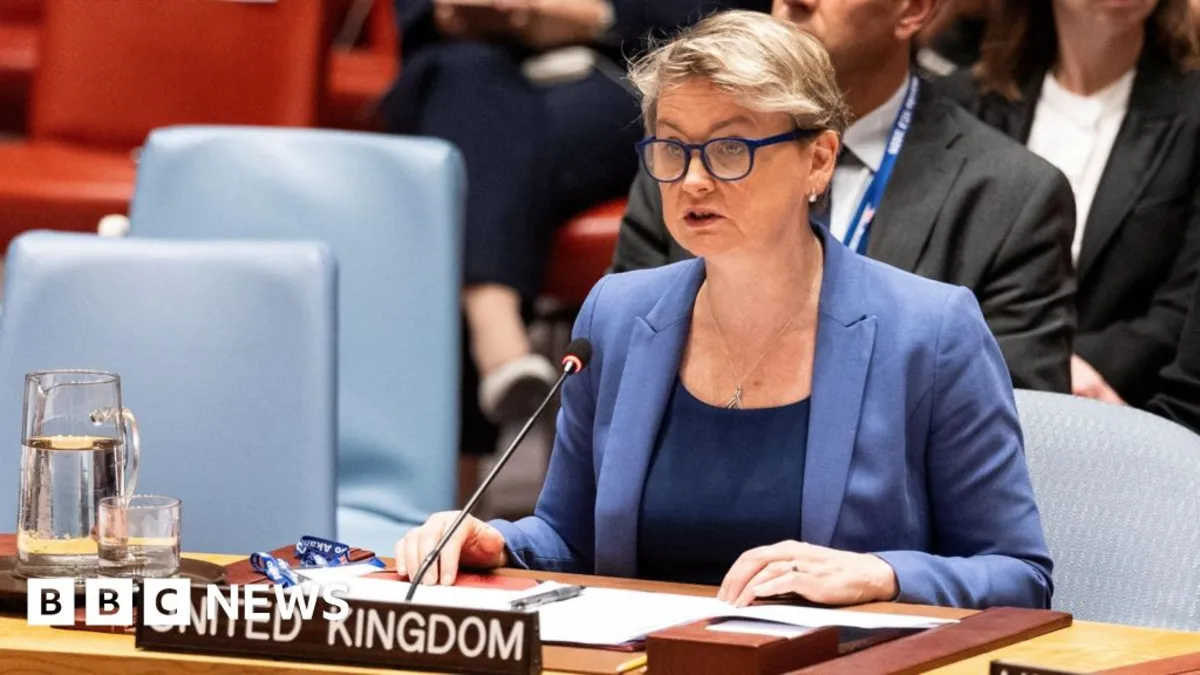
The United Kingdom, France, and Germany have jointly called on Iran to avoid escalating tensions and instead engage in diplomatic negotiations following the reinstatement of UN sanctions on Saturday. In a collaborative statement, the three nations expressed that they had no alternative but to reintroduce comprehensive measures against Tehran, citing the country's ongoing nuclear escalation and its lack of cooperation as key reasons for this decision.
The E3 nations emphasized, "We urge Iran to refrain from any escalatory action," adding that the reimposition of UN sanctions is not intended to mark the end of diplomatic efforts. This call for dialogue comes as Iran's President Masoud Pezeshkian vehemently rejected the sanctions, labeling them as unfair, unjust, and illegal. He reaffirmed last week that Iran has no intentions of developing nuclear weapons.
The sweeping economic and military sanctions were reinstated at 00:00 GMT on Saturday, nearly a decade after they were lifted as part of the landmark international agreement concerning Iran's nuclear program. Iran's nuclear activities intensified following the United States' withdrawal from the Joint Comprehensive Plan of Action (JCPOA) in 2016. Former President Donald Trump criticized the agreement, which was negotiated under his predecessor Barack Obama, branding it as fundamentally flawed.
Recent discussions between Iran and the E3 nations held during the UN General Assembly did not yield a consensus that could have delayed the reimposition of sanctions. In a joint statement released on Sunday, the foreign ministers of the E3 articulated, "Given that Iran repeatedly breached these commitments, we had no choice but to trigger the snapback procedure, resulting in the reinstatement of those resolutions."
Despite the reinstatement of sanctions, the E3 affirmed their commitment to pursuing diplomatic channels and negotiations with Iran. They highlighted Iran's failure to take necessary actions to address their concerns and meet their requests for an extension, despite extensive dialogue. A major concern was Iran's unwillingness to cooperate with the International Atomic Energy Agency (IAEA), which is crucial for monitoring nuclear activities.
Iran has not granted IAEA inspectors access to its nuclear sites, nor has it submitted a report detailing its stockpile of high-enriched uranium, as required. Following bombings of several of its nuclear sites and military bases by Israel and the US in June, Iran suspended IAEA inspections. Under the nuclear Non-Proliferation Treaty, Iran is legally obligated to allow inspections of its nuclear facilities, a situation recently confirmed by the IAEA.
While Iran has been engaged in talks with the IAEA to seek a way forward, it has expressed concerns that the return of sanctions could jeopardize these negotiations. President Pezeshkian has softened his earlier threats regarding Iran's potential exit from the Non-Proliferation Treaty. However, he has stated that Tehran requires assurances that its nuclear facilities will not be targeted by Israel to normalize its nuclear enrichment program.
Pezeshkian firmly rejected a US demand for Iran to surrender its entire stockpile of enriched uranium in exchange for a temporary exemption from sanctions, questioning, "Why would we place ourselves in such a trap and wear a noose around our neck each month?" In a further development, Iran announced on Saturday that it would be recalling its ambassadors to the UK, France, and Germany for consultations.